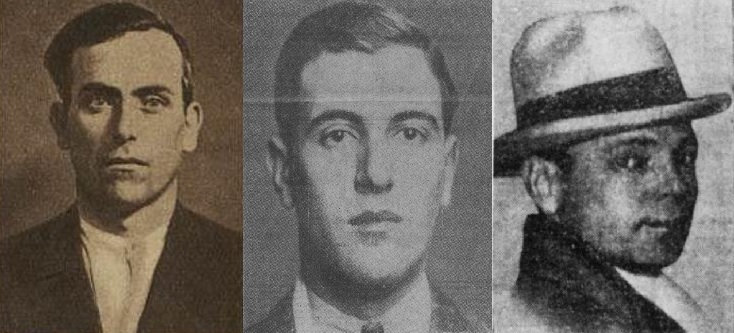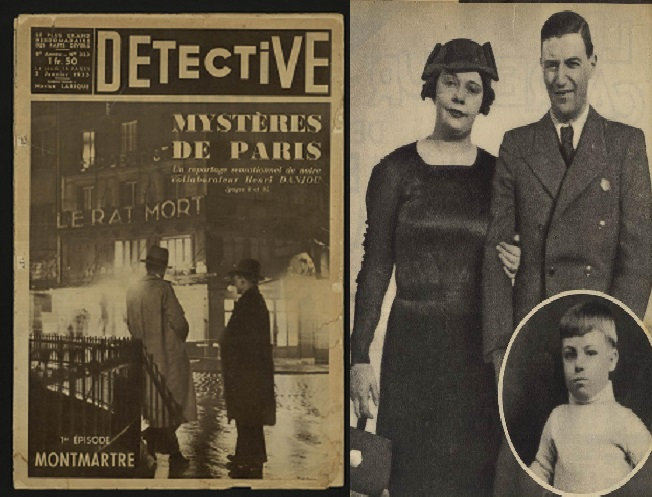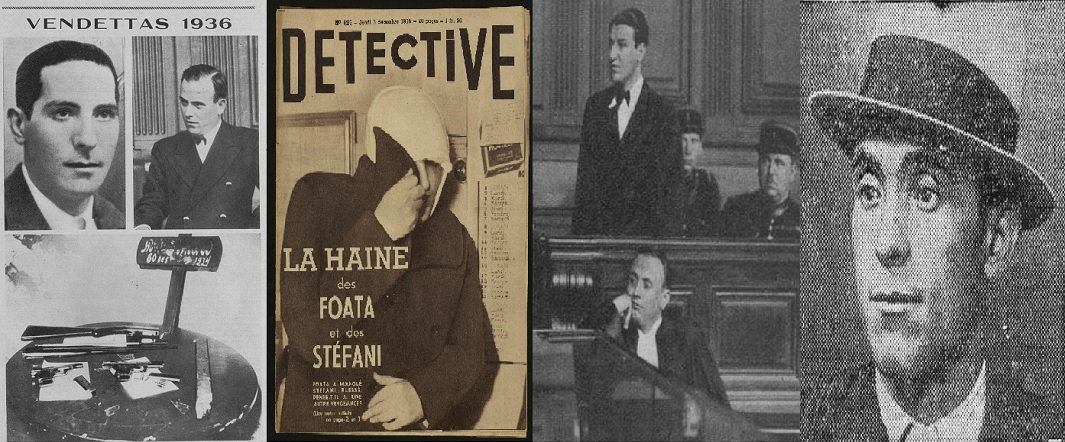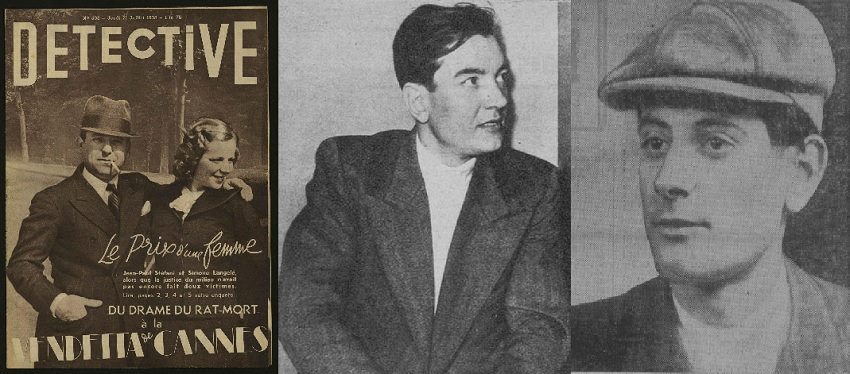Chapter 1: Pigalle's first Corsican Vendetta
From the 1930s, the Corsicans took over the organized crime in Paris, which had hitherto been in the hands of local thugs. They will be particularly active in the hot district of Paris, Pigalle-Montmartre (at the time it was one and the same district).If they are united against the locals, they will quickly break up and they will bloody the streets of Paris, Marseille or Toulon for nearly 40 years and 2 gangs will engage in the first major vendetta of the french underworld, with a backdrop of drug trafficking: The Corsicans of Paris, led by Jean-Paul Stefani and the Corsicans of Marseille led by Joseph (or Pierre) Marini (a man close to the bosses of Marseille Paul Carbone & François Spirito) .
The origins of the vendetta come from the jealousy of one of the Marini's lieutenants, Angelin(o) "Ange" Foata, who wants to get involved in drug trafficking and who is starting to spread the rumor that Stefani would be so successful in his business because he would be an informant for the police. It would also appear that Stefani bought a laboratory from Marini for 50,000 Francs. In short, Foata doesn't like it, and spreading the rumor that Stefani is a rat.

Jean-Paul Stefani, Angelino "Ange" Foata, Joseph "Pierre" "Le Capitaine des Corses" Marini
As might be expected, Stefani don't really appreciate and sets out in pursuit of Foata to bump him. On December 22, 1934, Foata was in a cabaret, "Le Rat Mort," with his mistress Madeleine Keusch (an ex prostitute) and her son François. Stefani is aware and at the club's front door fires 5 times. Foata is slightly injured while his son-in-law François is killed. Stefani running away is arrested a little further on.

The Rat Mort cabaret, Madeleine Keusch, Ange Foata & François Keusch
Two years later Stefani goes on trial for the murder of François Keusch. He is acquitted because according to him he cannot have killed the child because it is his brother Etienne. Etienne Stefani who has been killed on the evening of December 22 in retaliation for the kid's murder by a friend of Marini, Antoine Silvestri-Graziani (a member of a powerful Corsican clan of Toulon) who himself will be killed a month later.
On November 22, 1936 Stefani, accompanied by his cousin Dominique Paoleschi, went to the grave of his wife who died of tuberculosis while in custody pending trial. He is awaited there by Foata who hides to satisfy his revenge. Foata shoots, Stefani's hat is punctured, but he is not injured. Which is not the case with Paoleschi who is seriously injured (he will miraculously get away and will later be involved in cigarette smuggling and his main activity, pimping). Foata is stunned by a passerby and Foata is later sentenced to 7 years in prison (he will die of old age retired in Corsica).

Dominique Paoleschi, Jean-Paul Stefani and the rifle used in the cemetery
Angel Foata with a big headache and on his trial
Etienne "Bébé" Stefani, Jean-Paul's brother
It would be too simple if it stopped there. On July 11, 1937, Stefani is assassinated by a pimp André Marguin. The reason? Stefani was dating a prostitute belonging to Marguin and refused to pay him the fine. For an obscure reason (what follows will make me think of corruption ...), Marguin is acquitted of the murder and sentenced to a fine for carrying a prohibited weapon. Marguin is assassinated in Cannes in 1937, most likely by François Lucchinaci, a close man of the Stefani clan. As for Joseph Marini, the boss of Foata, after having escaped a shooting probably linked to the Stefanis, his fall will occur in 1937 for an insurance fraud. He blows up a removal truck that transports his furniture but the driver is killed ... We hear briefly about him in the 80s after Marie Paoleschi (Dominique's wife) wrote a book about his life. He sends a killer to deal with Marie, but she manages to dissuade him and the hit is abandoned. He died in 1984

Stefani with his new mistress Simone Langelé
André Marguin the former pimp of Simone
The alleged murderer of Marguin, François Lucchinaci